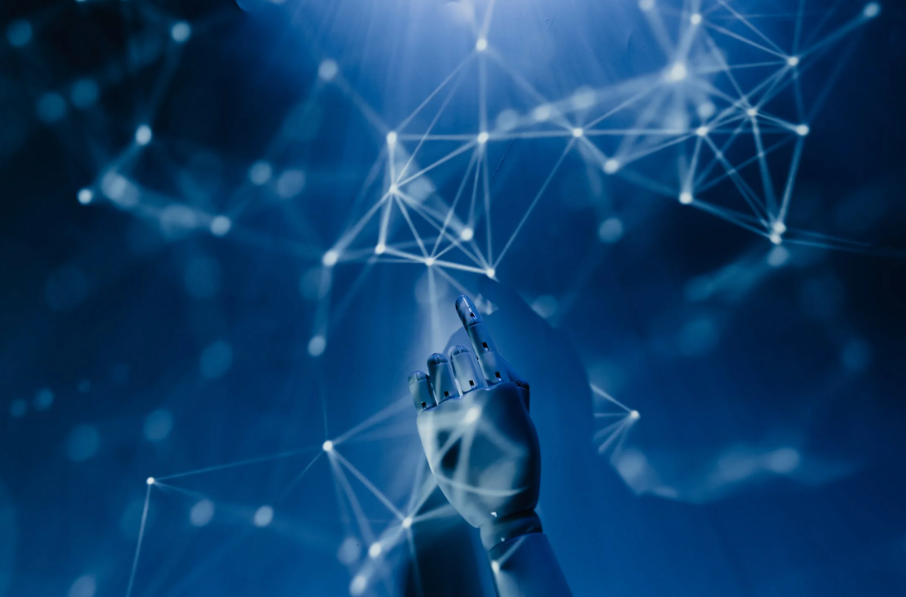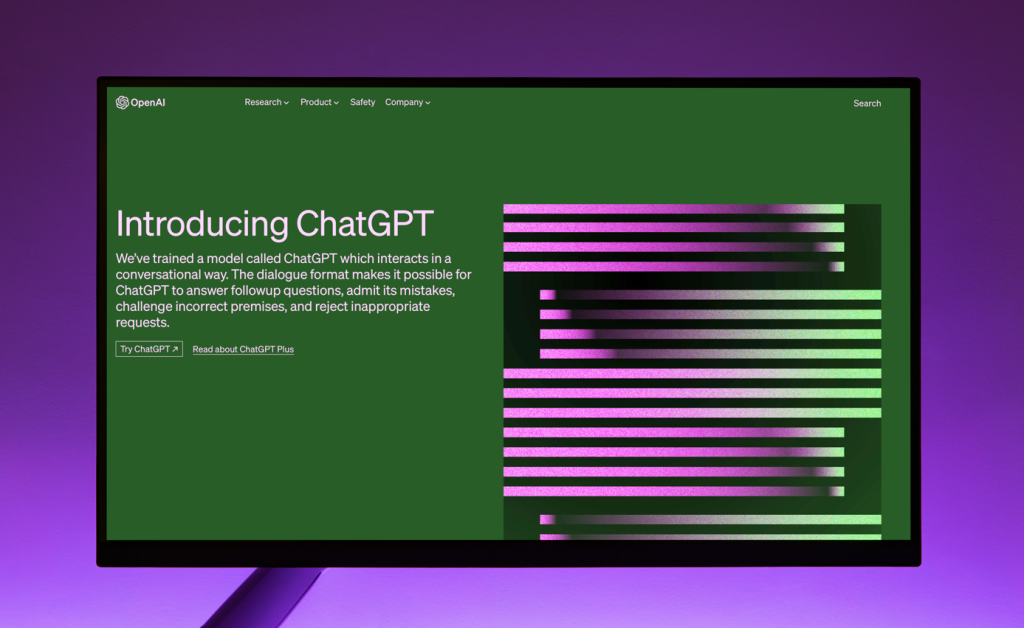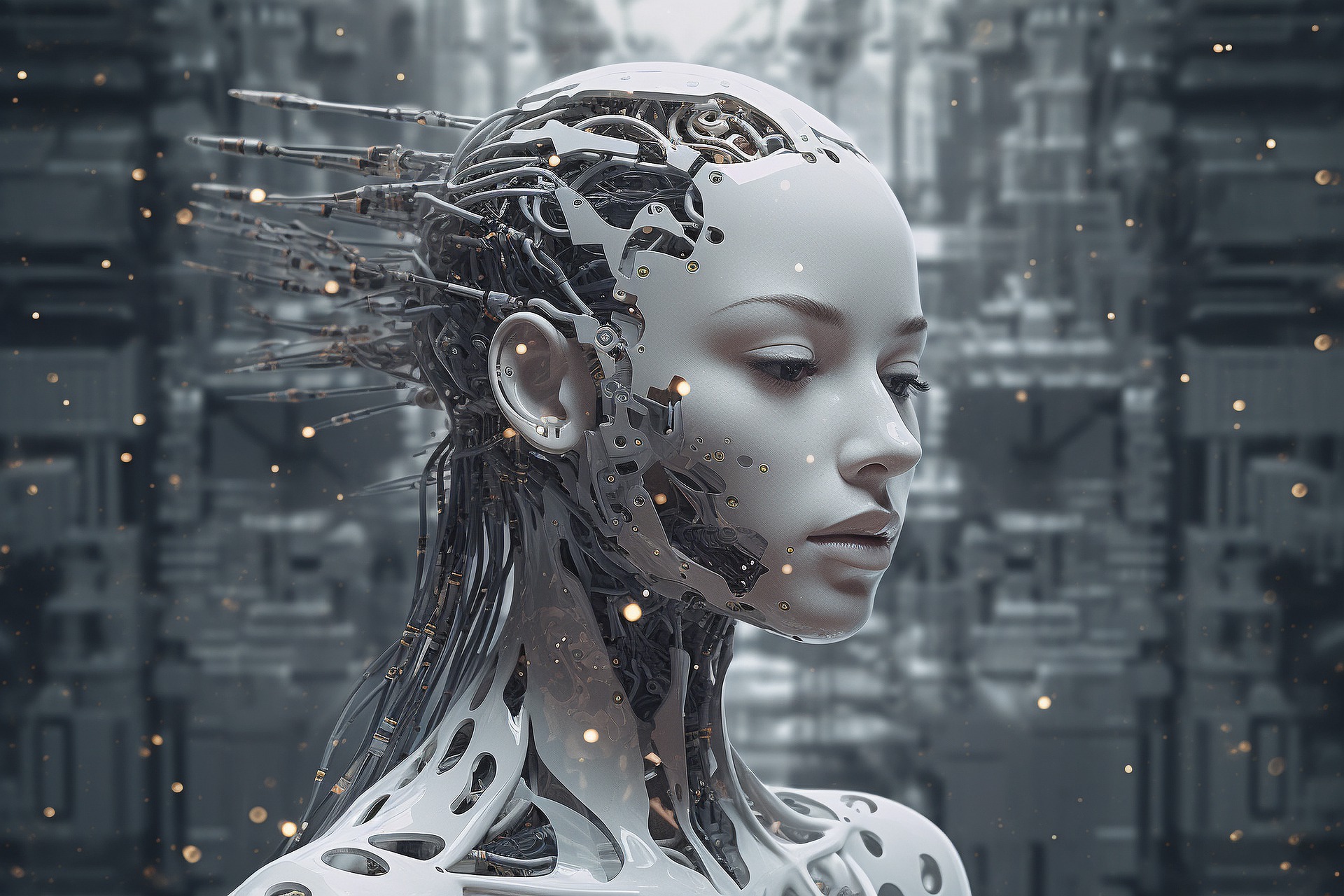Ways AI in Education is Transforming the Industry
Artificial Intelligence | May 24, 2023
Artificial Intelligence (AI) is revolutionizing various industries, and education is no exception. With the advent of advanced technologies, AI has gained significant momentum in transforming traditional education systems. It offers innovative solutions that enhance personalized learning, student engagement, administrative efficiency, content creation, and accessibility for students with learning disabilities.
This article explores the ways AI is reshaping the education landscape and its impact on various aspects of the industry. Prepared by experienced authors at a College paper writing service, it discusses the potential of AI as an educational tool and its applications across different sectors.
Education plays a vital role in shaping society, and the integration of AI technologies has the potential to redefine the way we teach and learn. AI in education refers to the utilization of intelligent systems and algorithms to support and enhance educational processes.
From personalized learning experiences to streamlining administrative tasks, AI is changing the way educators and students interact with educational content.
AI in Education: An Overview
Before diving into the transformative aspects of AI in education, it’s essential to understand the core components and capabilities of AI systems.
AI encompasses a range of technologies, including machine learning, natural language processing, and computer vision. These technologies enable computers and systems to mimic human-like intelligence and perform tasks that typically require human intervention.
Personalized learning with AI
One of the most significant advantages of AI in education is the ability to deliver personalized learning experiences to students. Personalized learning acknowledges that every student has unique strengths, weaknesses, and learning styles.
AI-powered systems enable educators to tailor educational content to individual students, allowing them to progress at their own pace.
Adaptive Learning Platforms
Adaptive learning platforms utilize AI algorithms to analyze students’ performance data and provide personalized recommendations. These platforms identify knowledge gaps and adapt the learning material to address each student’s specific needs.
By leveraging AI, adaptive learning platforms promote efficient and effective learning, ensuring that students receive targeted support and resources.
Intelligent Tutoring Systems
Intelligent tutoring systems employ AI technologies to provide interactive and adaptive tutoring experiences. These systems simulate human tutors by leveraging natural language processing and machine learning algorithms by understanding students’ individual learning patterns and preferences, intelligent tutoring systems offer customized guidance, explanations, and feedback, fostering deeper comprehension and knowledge retention.
Enhanced student engagement
AI technologies also contribute to enhanced student engagement, making the learning process more interactive, enjoyable, and effective.
Gamification and AI
Gamification, the integration of game elements into educational contexts, is made even more effective with AI. AI-powered gamification platforms can analyze students’ progress, achievements, and behaviors, allowing for personalized game mechanics and challenges. By introducing competition, rewards, and feedback, AI-driven gamification motivates students to actively participate, collaborate, and excel in their learning journeys.
Virtual Reality in Education
Virtual Reality (VR) is another innovative application of AI in education. VR technology creates immersive, simulated environments that enable students to explore and interact with subjects beyond traditional classroom boundaries. With AI, VR experiences can be personalized, adapting to individual learning styles and preferences. Students can virtually travel to historical sites, explore scientific concepts, or simulate real-world scenarios, significantly enhancing their understanding and engagement.
Efficient Administrative Tasks
AI streamlines administrative tasks, freeing up educators’ time to focus on instructional delivery and student support.
Automated Grading and Assessment
AI-powered grading and assessment systems automate time-consuming tasks such as grading multiple-choice tests and providing instant feedback, by leveraging machine learning algorithms, these systems can analyze and evaluate students’ responses, providing accurate and timely feedback.
This automation not only saves educators’ time but also ensures consistent and unbiased assessment, improving the overall learning experience.
Streamlined Administrative Processes
AI systems help streamline administrative processes in educational institutions. From managing student records and scheduling to automating routine administrative tasks, AI simplifies complex workflows.
Chatbots powered by natural language processing assist students and parents in answering queries, providing relevant information, and guiding them through administrative procedures.
These AI-based solutions enhance efficiency, allowing educators and administrators to focus on delivering high-quality education.

AI-Enabled Content Creation
AI has the potential to revolutionize content creation by automating various aspects of the process.
Automated Content Generation
AI algorithms can generate educational content such as quizzes, practice exercises, and even instructional videos. These algorithms analyze vast amounts of data to understand common misconceptions, learning gaps, and effective teaching strategies.
With this information, AI-generated content offers dynamic and adaptive learning experiences, catering to students’ specific needs and preferences. But if a student needs a unique college paper written by a human, this site provides access to experienced writers who will create a custom paper tailored to their academic requirements.
Intelligent Content Curation
AI-powered content curation systems gather and organize educational resources from various sources, ensuring that educators have access to relevant and high-quality materials. These systems leverage machine learning algorithms to analyze and categorize educational content based on its relevance, quality, and alignment with curriculum standards. Intelligent content curation enhances educators’ ability to find and utilize valuable resources, saving time and effort.

Addressing Learning Disabilities
AI technologies have shown great potential in addressing the needs of students with learning disabilities.

Assistive Technologies
AI-powered assistive technologies support students with learning disabilities by providing personalized assistance and accommodations. For example, speech recognition systems help students with dyslexia or writing difficulties by transcribing spoken words into text.
Similarly, text-to-speech systems assist visually impaired students by reading aloud written content. These AI-enabled tools empower students with disabilities to access educational content and participate fully in the learning process.
Speech and Language Recognition
AI-based speech and language recognition technologies aid in language learning and development. These systems analyze speech patterns, pronunciation, and vocabulary usage, providing feedback and suggestions to improve language skills.
By leveraging AI, students can practice speaking and listening skills in a supportive and interactive environment, enhancing their language acquisition process.
Ethical Considerations and Challenges of AI
While AI offers tremendous potential in education, it also raises ethical considerations and challenges.
Data Privacy and Security
AI systems in education gather and process large amounts of student data. Ensuring data privacy and security is crucial to protect students’ personal information and preventing misuse. Educational institutions must establish robust data protection measures and comply with relevant regulations to maintain the trust and confidence of students, parents, and educators.
Bias and Fairness in AI Systems
AI algorithms are trained on data, and if the data used for training is biased, it can lead to biased outcomes. Bias in AI systems can perpetuate existing inequalities and disadvantage certain groups of students.
To mitigate this issue, developers and educators must continuously monitor and evaluate AI systems for bias, ensuring fairness and equal opportunities for all learners.
Conclusion
AI in education is transforming the industry by offering personalized learning experiences, enhancing student engagement, streamlining administrative tasks, automating content creation, and addressing the needs of students with disabilities. While embracing the benefits of AI, it is crucial to consider ethical considerations, such as data privacy and fairness.
As AI continues to evolve, its integration into education has the potential to unlock new opportunities and revolutionize the way we teach and learn.
FAQs
How Does AI Impact Traditional Teaching Methods?
AI impacts traditional teaching methods by enabling personalized learning experiences, automating administrative tasks, and providing intelligent tutoring systems that offer customized guidance and support.
Can AI Completely Replace Human Teachers?
No, AI cannot completely replace human teachers. AI technology serves as a valuable tool to enhance teaching and learning processes, but the human element of teaching, such as empathy, creativity, and critical thinking, remains essential.
What Are Some Potential Drawbacks of Using AI In Education?
Potential drawbacks of using AI in education include concerns about data privacy and security, bias in AI systems, and overreliance on technology, which may hinder the development of certain skills and human interaction.
Are There Any Ethical Concerns Associated with AI In Education?
Yes, ethical concerns in AI education include data privacy and security, fairness and bias in AI algorithms, and ensuring equal opportunities and access to educational resources for all students.
How Can AI Help Students with Special Needs?
AI can help students with special needs by providing assistive technologies, such as speech recognition systems and text-to-speech tools, that support their learning and access to educational content. AI also facilitates personalized accommodations and individualized learning experiences for students with disabilities.





